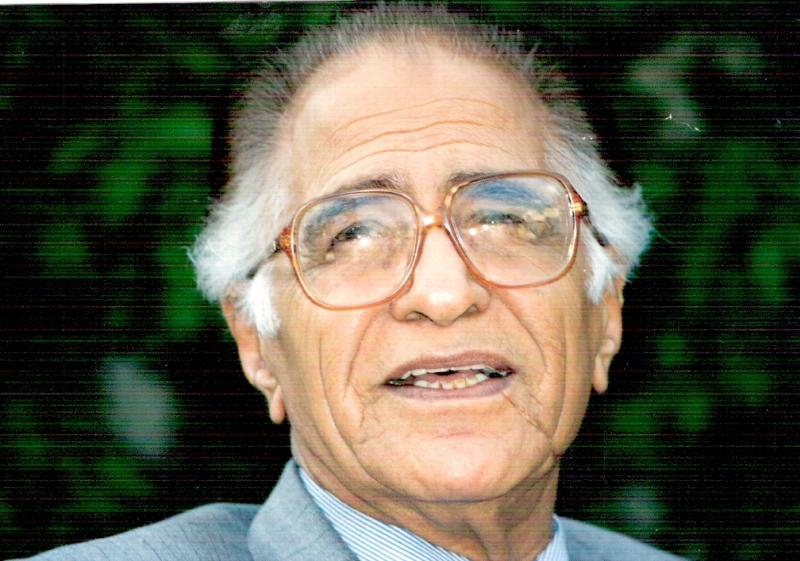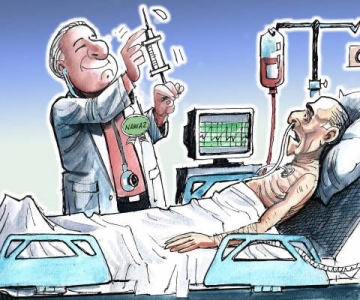Ahmed Nadeem Qasmi (1916-2006)
Ab aik baar to qudrat javaabdeh thehre
hazaar baar ham insaan aazmaaye gayeNow Nature must be held accountable at least once
We humans have been held answerable a thousand times
Few men evoke such awe and respect as the departed poet and writer Ahmed Nadeem Qasmi who breathed his last on July 10 2006. His mastery over poetry he has been equally prolific in traditional ghazal and nazm and prose as a short story writer, journalist and literary critic stand at the pinnacle of Urdu literature and he has contributed to the language over 50 titles. Born in 1916 amidst the scenic Soon-Sekasar valley in district Khushab, nature influenced the evolution of Qasmis poetic sensibilities. Exposure to the grim realities of rural India inequities also played their part in his development as a writer; the underlying theme of his poetry is human dignity and his short stories regarded as next in line to another master, Munshi Prem Chand, for their directness and simplicity portrayed the woes of the Punjabi peasantry and their interaction with power structures. Following his matriculation from Campbellpur in 1931, around the time when he wrote his first poem, he moved to the Sadiq Egerton College in Bahawalpur and graduated in 1935. Qasmi’s early short stories such as Hiroshima say pehle, Hiroshima Kay Baad, narrated the devastating effects of the Hiroshima bombing on a small Punjabi village which fed recruits to the British army. His other stories Lawrence of Thalaibia and Rais Khana attacked pirs and feudal lords for their relentless exploitation of peasants.
Read more about Qasmi:



